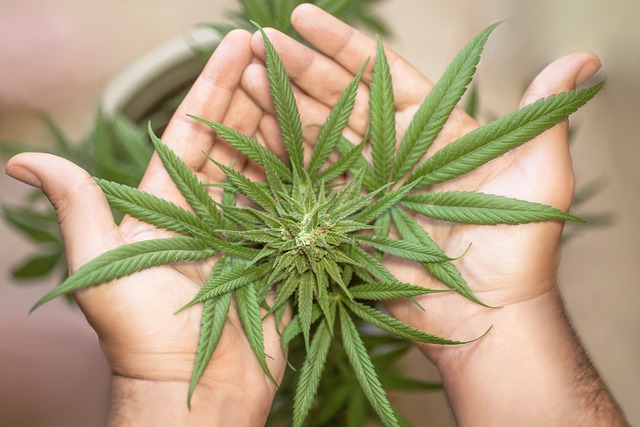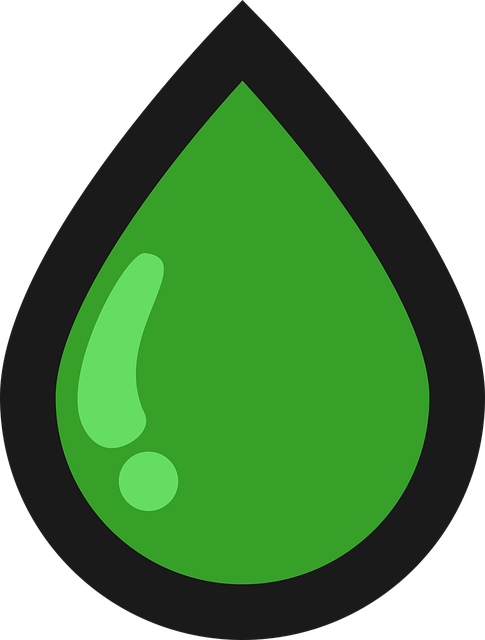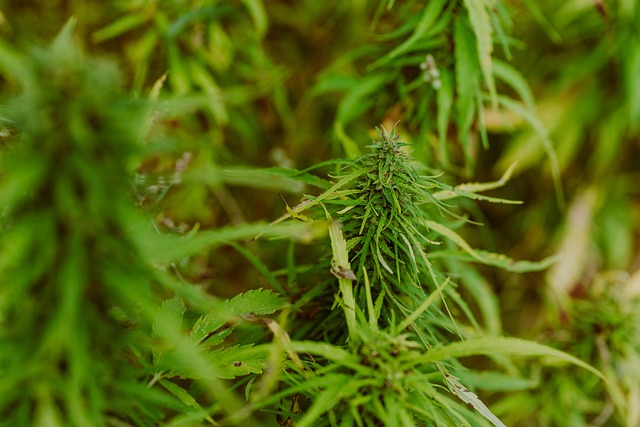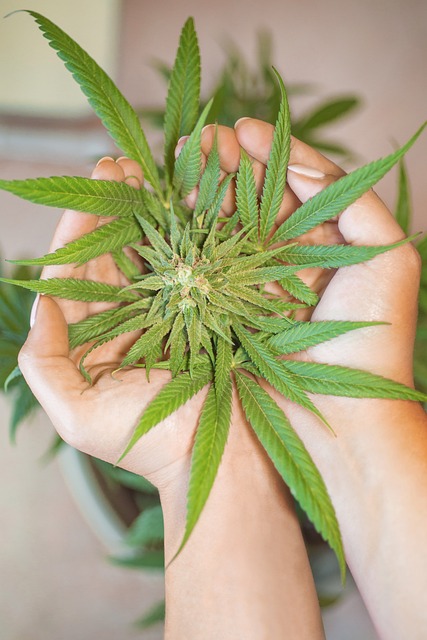THCA buds contain the non-psychoactive precursor to THC and offer potential therapeutic effects without inducing a 'high.' They are favored by those seeking psychoactive benefits as THCA converts to THC when heated, providing euphoric and mind-altering experiences. On the other hand, CBD buds are rich in cannabidiol, known for its calming and anti-inflammatory properties, which can help with anxiety, pain, and inflammation. When choosing between THCA bud vs CBD bud, it's important to consider the specific effects and your personal wellness goals, as the potency and nature of your experience will vary depending on whether you opt for the psychoactive THCA or the therapeutic CBD. For cultivators, understanding the growth conditions and selecting the right strain are crucial for producing high-quality buds with the desired level of THCA or CBD. Proper decarboxylation is essential for THCA users to experience its effects after consumption, and the method and dosage of intake will influence the onset and duration of its effects. The synergy between cannabinoids and terpenes can also affect the experience, so awareness of this interaction is key. Lastly, storage plays a role in maintaining the potency of THCA buds for an optimal consumption experience. This summary encapsulates the main considerations for differentiating between THCA bud vs CBD bud and their respective effects and cultivation processes.
Explore the emergent world of THCA flower tips, a natural phenomenon offering unique wellness benefits. This article sheds light on the distinct properties of THCA buds and how they compare to their counterpart, CBD buds. Delve into a comprehensive analysis that uncovers potency and effects differences, providing insights for both cultivators and consumers seeking an optimal experience. Whether you’re new to THCA or versed in its virtues, this guide offers practical advice to enhance your engagement with these compelling cannabinoid-rich flowers. Join us as we navigate the nuances of THCA bud vs CBD bud, ensuring a well-rounded understanding for an enlightened approach to cannabinoid consumption.
- Understanding THCA Buds and Their Distinctive Properties
- A Comparative Analysis of THCA Buds and CBD Buds: Potency, Effects, and Usage
- Cultivating and Consuming Your THCA Flower: Tips for Optimal Experience and Benefits
Understanding THCA Buds and Their Distinctive Properties

THCA, or tetrahydrocannabinolic acid, is the raw form of THC found in cannabis flowers before they have been exposed to heat or light. Unlike its more famous counterpart, CBD, which is non-psychoactive, THCA possesses a distinct set of properties that make it a subject of interest for researchers and consumers alike. While both THCA buds and CBD buds originate from the cannabis plant, their effects and applications differ significantly.
THCA buds contain higher levels of THC precursors compared to CBD buds, which do not contain significant amounts of THC. This difference is crucial for those seeking psychoactive effects, as the THCA molecule converts to THC when heated, leading to the euphoric and mind-altering experiences associated with cannabis consumption. THCA itself has been observed to exhibit anti-inflammatory and neuroprotective properties, making it a potential therapeutic agent for various conditions, although more research is needed to fully understand its capabilities. Users often prefer THCA buds for their potential psychoactive effects, while those seeking relief from certain ailments without intoxication may opt for CBD buds. Understanding the nuanced differences between THCA buds and CBD buds is essential for consumers looking to tailor their cannabis experience according to their needs and preferences.
A Comparative Analysis of THCA Buds and CBD Buds: Potency, Effects, and Usage

THCA and CBD buds, both derived from cannabis sativa, offer distinct experiences due to their unique chemical structures and effects on the human body. Tetrahydrocannabinolic acid A (THCA) is the raw, non-psychoactive form of THC found in raw cannabis plants or when cannabis is preserved in a way that prevents THCA from degrading into THC. THCA buds are known for their potential therapeutic properties without the psychoactive ‘high’ associated with THC. On the other hand, cannabidiol (CBD) buds contain CBD, which is also non-psychoactive and renowned for its calming and anti-inflammatory effects.
In terms of potency, THCA buds may offer a more energizing and uplifting experience, as some users report increased focus and creativity. This is because THCA interacts with the body’s endocannabinoid system in a way that can promote well-being without altering one’s mental state. Conversely, CBD buds are often sought after for their soothing effects, which can help alleviate anxiety, pain, and inflammation. Both THCA and CBD buds can be consumed in various forms, including flower, concentrates, edibles, and topicals. When comparing THCA bud vs CBD bud, it’s essential to consider the desired effect, as the choice between these two will influence your experience significantly. Users interested in exploring the potential benefits of cannabinoids should choose between THCA or CBD buds based on their specific needs and the effects they wish to achieve. Whether for wellness, relaxation, or creative stimulation, understanding the differences between THCA bud vs CBD bud can guide users toward a more informed choice tailored to their individual requirements.
Cultivating and Consuming Your THCA Flower: Tips for Optimal Experience and Benefits

When cultivating THCA flower, understanding the nuances between THCA and CBD buds is crucial for tailoring your garden to produce the desired effects. THCA buds contain higher levels of tetrahydrocannabinolic acid, a non-psychoactive cannabinoid that can convert into THC upon heating. This makes THCA an attractive option for those seeking potential health benefits without the psychoactive high associated with THC. In contrast, CBD buds are rich in cannabidiol, another non-psychoactive cannabinoid known for its relaxing and soothing properties. To cultivate THCA-rich flowers effectively, consider optimizing light exposure, maintaining proper humidity levels, and monitoring soil nutrients to encourage robust growth and high potency. Additionally, choosing the right strain is essential; some strains are naturally higher in THCA and can offer a more invigorating experience compared to their CBD counterparts.
For those preferring to consume THCA flowers, proper decarboxylation is a key step to convert the THCA into THC, unlocking its potential psychoactive effects. Consumers should also be mindful of dosage and consumption methods, as smoking or vaporizing will yield immediate effects, while edibles may provide a longer-lasting experience. It’s important to experiment responsibly with dosages and delivery systems to find the optimal experience for your individual needs. Additionally, consider the synergy between THCA and other cannabinoids and terpenes present in the flower, as this can influence the overall effects and benefits. Proper storage of your THCA buds is also essential to preserve their potency and ensure a high-quality experience when consumed.
THCA flower tips hold significant value for enthusiasts and those curious about their distinct properties and potential benefits. This article has delved into the nuances of THCA buds, setting them apart from their CBD counterparts through a comparative lens, highlighting key differences in potency and effects. Further, practical advice was provided on how to cultivate and consume THCA flowers for an optimal experience. Understanding the subtle yet impactful distinctions between THCA buds and CBD buds is crucial for anyone looking to explore these cannabinoid-rich botanicals responsibly. As the interest in cannabinoids continues to grow, this information empowers readers with knowledge to make informed choices about their use, whether for therapeutic or recreational purposes. With the right approach, both cultivators and consumers can unlock the full potential of THCA buds.
